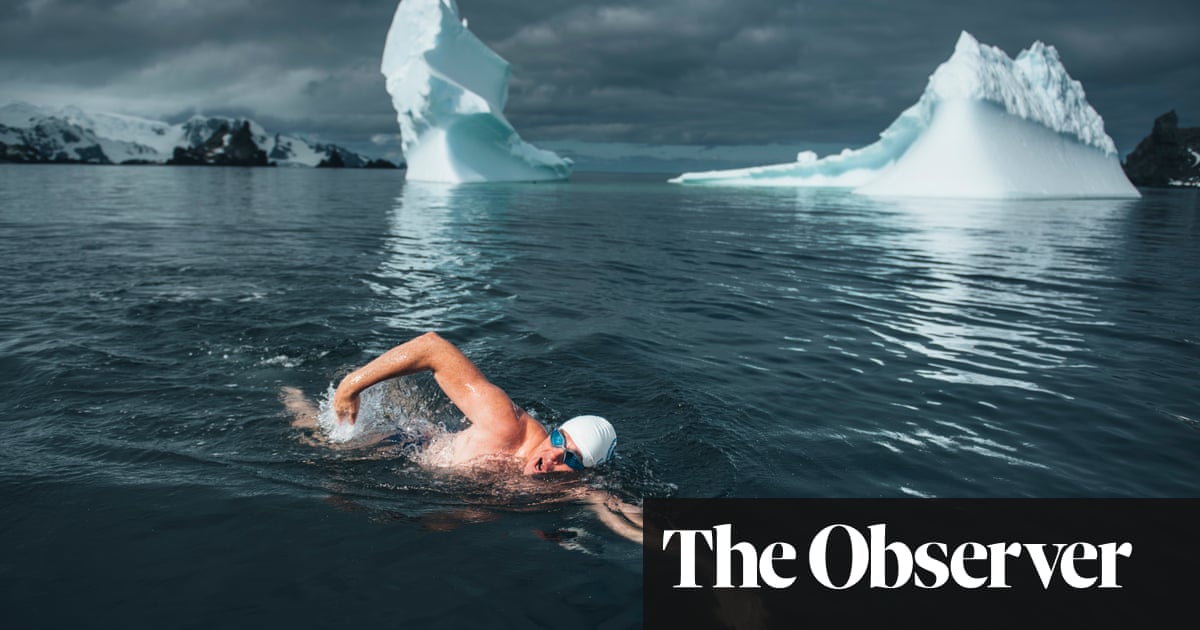
The stern of a ship looms out of the darkness. The outlines of the wooden rails are soft with algae, and one pale, ghostly anemone clings to the planks. As the camera moves closer, the shape of a star rises up from the gloom, and a word on the ship beneath the anemone’s white fronds becomes legible: Endurance.
Ernest Shackleton’s ship was finally found by an expedition team from the Falklands Maritime Heritage Trust on 5 March, having lain on the bed of an Antarctic sea in near-perfect condition for 107 years. I followed it all from my desk, light-headed with delight as I watched a video released by the expedition. And as I sat there I wondered, as I often have during the past year: why do I care so much about this?
My obsession with historical polar exploration began in earnest during the lockdown of early 2021. I stumbled across a song called Northwest Passage by the Canadian folk musician Stan Rogers. Its lyrics describe a modern journey through the Canadian Arctic following the journey of John Franklin, who led a doomed expedition in 1845 to discover the fabled Northwest Passage that was supposed to lead across the Arctic and into the Pacific Ocean. In heartbreakingly gorgeous harmonies, it tells of the two ships of Franklin’s expedition, HMS Terror and HMS Erebus, “tracing one warm line through a land so wild and savage”. Franklin and all of his crew died after their ships became locked in the ice.
I listened to that song easily a hundred times in a row. I lost whole days listening to it. Then I learned there was a BBC adaptation of a novel based on this expedition. There were books to read, websites to trawl, then other polar expeditions to discover. I was hooked.
I pored over maps of parts of the Earth I had never seen before, parts carelessly pinched on maps by the Mercator projection – because who could need to see these regions, where unimaginably huge swaths of nothing were? – and had a sensation not unlike looking at a map in a fantasy book as a child. All that promise of adventure. I lay in my bed each night transfixed by Rogers’s song and the story it told, hearing a whisper of what it might feel like to meet your end where a frozen sea meets a frozen sky, knowing in those last moments that you strayed too far from where man should tread and have walked off the edge of the Earth into the truly undiscovered country that lies beyond: death. If that sounds overblown and flowery, I’m with you. Polar narratives give me a kind of poetry poisoning. They bring some deep and earnest part of myself to the surface.
But I’m not the only one. It’s possible to get addicted to the poles. There are endless stories of people going there, experiencing hell, and then finding they cannot stay away. Franklin’s doomed trip north in 1845 was not his first: on an 1819 expedition to the Canadian Arctic, more than half of his party died of starvation or exhaustion. Still he returned. More arcane magnetisms are at play in these places than science usually accounts for. And I’m far from the first person to wonder why that should be.
Partly, there’s the appeal of the language. “Get a load of this!” I want to yell at strangers when I read things like Tennyson’s epitaph on the monument to Franklin, whose body remains lost in the Arctic: “The white north hath thy bones, and thou … art passing on thy happier voyage now towards no earthly pole.” Or the polar explorer Frederick Cook writing “we were the only pulsating creatures in a dead world of ice.” Even the western names of the polar places themselves thrill me. The Titan Dome. The Beaufort Sea. The Brunt Ice Shelf. Repulse Bay. Come on!
Is it a hunger for something ghoulish? Undoubtedly, many polar narratives are horror stories. Onboard the ship Belgica, trapped in the ice over an Antarctic winter in 1898, one sailor lost his mind so conclusively that he tried to walk across the ice “back to Belgium”. I’m not really a horror fan, though. I don’t think it’s an appetite for stories of derring do, either. The whole notion of the glory of exploration is a little absurd to me, especially in the case of the Arctic, where indigenous people have been living for millennia without making a fuss about it.
What is telling, I think, is that I am most fascinated by the polar expeditions that failed, horrific or not. They are not stories of gallivanting adventurers who went forth to plunder and brought back the spoils of a foreign land. They are stories where the tables were turned. Stories where the explorers’ ships, their cargo and, in some cases, their own bodies became the spoils, and the foreign land kept them.
And I do find accounts of men coming to terms with this reversal of fortunes, often with extraordinary forbearance, moving. “We took risks. We knew we took them. Things have come out against us … we have no cause for complaint,” the explorer Robert Falcon Scott wrote in his diary, discovered next to his frozen corpse on the Antarctic Ross Ice Shelf in 1912.
But a more important part of what keeps me coming back to polar stories is the same thing that pulled explorers to the poles in the first place: the irresistible draw of the unknown. I asked my friend Hester, a lifelong polar fanatic, what has held her attention for so long. One of the things, she said, was “the idea people had that there might be something else over the rim of the Earth”.
All these men set out to answer various formulations of one question: what lies beyond the world we know? In the case of the Shackleton expedition to the Antarctic, and the Franklin voyage to the Northwest Passage, the ships they sailed in became answers to those questions in themselves. As well as the Endurance, the Erebus and the Terror, found in 2014 and 2016 respectively, were lost for more than a century.
If polar landscapes make us contemplate the vastness of space, polar wrecks make us contemplate the vastness of time. Day-to-day life often feels rushed and chaotic. There is something bracing about knowing that there are parts of the world where time hardly passes; that a ship can sit in perfect cold and silence, untouched by anything but salt and silt for a hundred years. It’s like looking at a diamond: evidence of the inconceivable expanse of time, cold and beautiful.
Imogen West-Knights is a writer and journalist based in London












